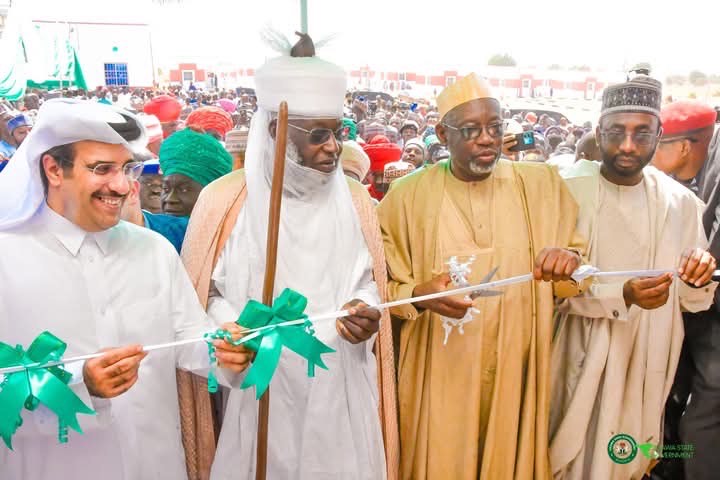Dutse, July 16, 2025 — In a significant boost to women empowerment and poverty alleviation in Jigawa State, the Qatar Charity Foundation, in collaboration with the state government, has distributed economic equipment and support grants worth over ₦300 million to 60 vulnerable women, mainly widows, across the state.
The event, held at the Government House in Dutse, featured the official handover of 20 tricycles for passenger transportation, 20 tricycles for goods delivery, and 20 heavy-duty grinding machines. Each beneficiary also received a ₦50,000 grant from the Jigawa State Government to assist with startup costs.
Speaking at the presentation ceremony, Governor Umar Namadi commended the Qatar Charity for its continued support, emphasizing that the initiative aligns with his administration’s agenda to improve the living conditions of women and vulnerable groups in the state. He noted that the beneficiaries were carefully selected from all 27 local government areas, ensuring fairness and inclusivity.
The Ambassador of Qatar to Nigeria, Dr. Ali Bin Ghanim Al-Hajiri, who led the delegation, praised Jigawa State’s peaceful and development-driven environment. He highlighted the empowerment scheme as a testament to the enduring friendship between Qatar and Nigeria and reaffirmed Qatar Charity’s commitment to supporting humanitarian causes in the country.
Also speaking at the event, the State Commissioner for Humanitarian Affairs and Special Duties, Auwalu Danladi Sankara, assured that the initiative would greatly enhance the economic stability of the beneficiaries. He reiterated the state government’s commitment to sustaining such impactful partnerships aimed at fostering social inclusion and economic growth.
One of the beneficiaries, Hajia Fatima from Malam Madori LGA, expressed deep gratitude for the support, stating that the grinding machine and the accompanying grant would help her start a sustainable business to support her family.
The empowerment programme is part of a broader collaboration between Qatar Charity and Jigawa State, which also includes interventions in water supply, education, and religious infrastructure, further deepening development efforts in the region.
